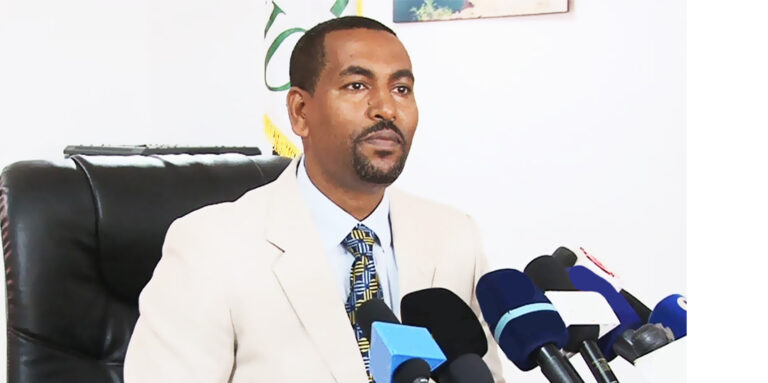By Kebour Ghenna
The International Monetary Fund (IMF) recently gave Ethiopia a pat on the back, praising its economic reforms and tighter monetary policies. But let’s take a closer look—this isn’t the shiny success story it’s made out to be. In fact, it feels a bit like cheering for a marathon runner who’s barely made it past the first mile and is limping already.
First, the exchange rate gap. Yes, the IMF applauds Ethiopia for narrowing the gap between the official and black-market rates, but let’s not pop the champagne just yet. What’s really happened? The official rate is sliding toward the black-market rate, yet a gap of 12-15% remains. It’s like patching a leaky boat with duct tape—it’s still taking on water. Can this really be considered “fixing” the economy? Businesses struggling to access foreign currency would certainly disagree.
Then there’s the talk about “better management of the economy and improving the business environment.” Seriously? Tell that to the entrepreneurs grappling with inflation, dwindling purchasing power, and red tape that could stretch to the moon. Statements like this might look good on IMF stationery, but they’re not fooling the people living with the consequences.
A particularly troubling aspect of the IMF’s assessment is its praise for Ethiopia’s tight monetary policies. While controlling inflation and reducing central bank borrowing are important, these measures risk pushing the country into austerity at a time when growth is desperately needed. Ethiopia’s economy requires robust public investment, especially in infrastructure and agriculture, to create jobs and reduce poverty. Tight money policies could stifle this growth, further exacerbating economic challenges.
Most glaringly, the IMF fails to address Ethiopia’s ongoing security crises in the Amhara and Oromia regions. These regions are among the most agriculturally productive in the country, yet they are mired in escalating violence and instability. The conflict not only disrupts livelihoods but also undermines the very foundation of economic growth and food security. It is puzzling, if not outright negligent, that the IMF overlooks these significant factors in its analysis.
So, what’s wrong with the IMF? Its approach appears overly focused on technical economic indicators, sidelining the broader socio-political context that directly impacts economic performance. By ignoring the severe security issues and the lived realities of businesses and citizens, the IMF risks promoting policies that may look good on paper but fail to address Ethiopia’s core challenges. A more nuanced, inclusive, and grounded approach is urgently needed to truly support Ethiopia’s recovery and growth.







